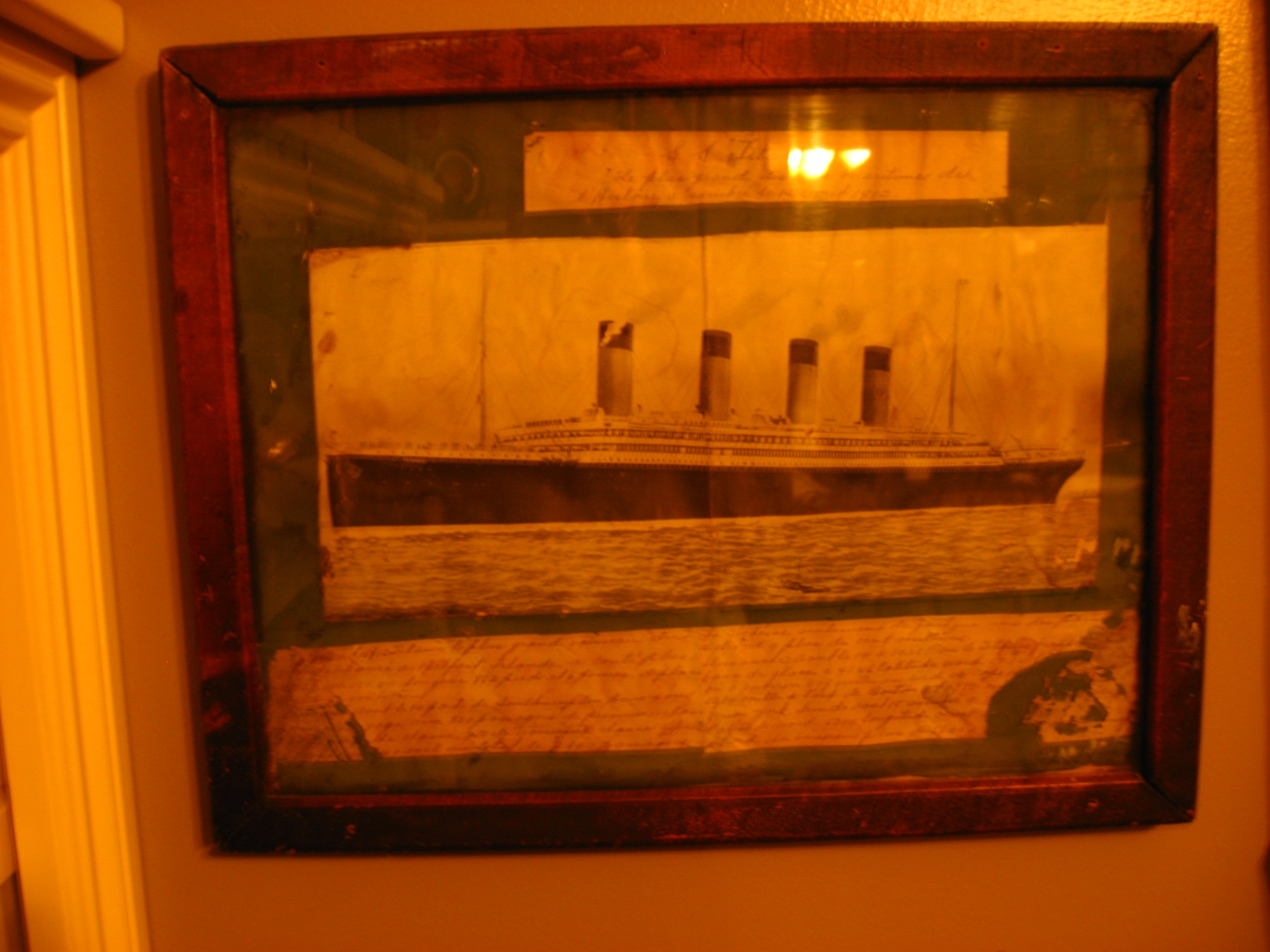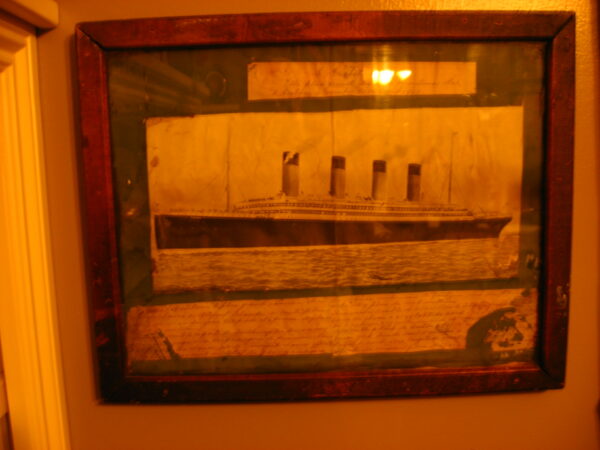DISPATCHES FROM HOME – The Ship of Dreams April 2020

By this time one-hundred and eight years ago, the real ship of dreams, R.M.S. Titanic, was no more than a twisted wreck, surrounded by a graveyard of people’s lives, memories, hopes, and dreams. Ever since my Dad and I watched the 20th Century Fox movie, “Titanic,” one Saturday afternoon in 1966, I’ve been mesmerized by this great ship, a microcosm of early 20th-century society. And because of that movie, my house is filled with ocean liner memorabilia.
I must own over a hundred books on the great liners of the 20th century, perhaps a quarter of those books written about the Titanic. My collection consists of many framed period pictures of those floating palaces, a few models, a china plate or two, and a slew of vintage cups and saucers. But the item I prize the most is an authentic piece of Titanic memorabilia. It is a homemade memorial to the great ship, created by someone who must have truly loved the ship or—perhaps—who had a loved one die in the disaster.
In the picture provided, you see a period rendering of the Olympic, the first of the Olympic-class ocean liners. They were a trio of British ships built by the Harland & Wolff shipyard for the White Star Line during the early 20th century. The three liners were Olympic (1911), Titanic (1912), and Britannic (1915). I’ve seen this picture in many ocean liner books. It was part of the White Star Line’s advertisement for the three massive liners.
The picture’s green border is old-fashioned blotter paper, the writing at the bottom is written on period stationery. What also intrigued me about this picture is the written information about the Titanic, most of which is incorrect.
The text is written in an old French dialect, according to the Montreal antique dealer from whom I purchased the picture in 1990. It lists the Titanic’s construction cost, where she sailed from, along with the longitude and latitude of the ship’s sinking. Boston is listed as the Titanic’s destination. The antique dealer also told me that the person who wrote the information was a lousy speller. (A man or woman after my own heart, wretched speller am I.)
In the bottom right-hand corner, you see the result of the picture’s exposure to humidity. The frame is obviously handmade. There are holes in the frame that suggest it was screwed to a wall or some other wooden structure. The glass is thick and wavy. The back of the frame is covered with unfinished wood.
Whatever the reason might have been, I can’t help but believe that whoever created this picture must have been fascinated by the Titanic. Fascinated by the Titanic…imagine that!

